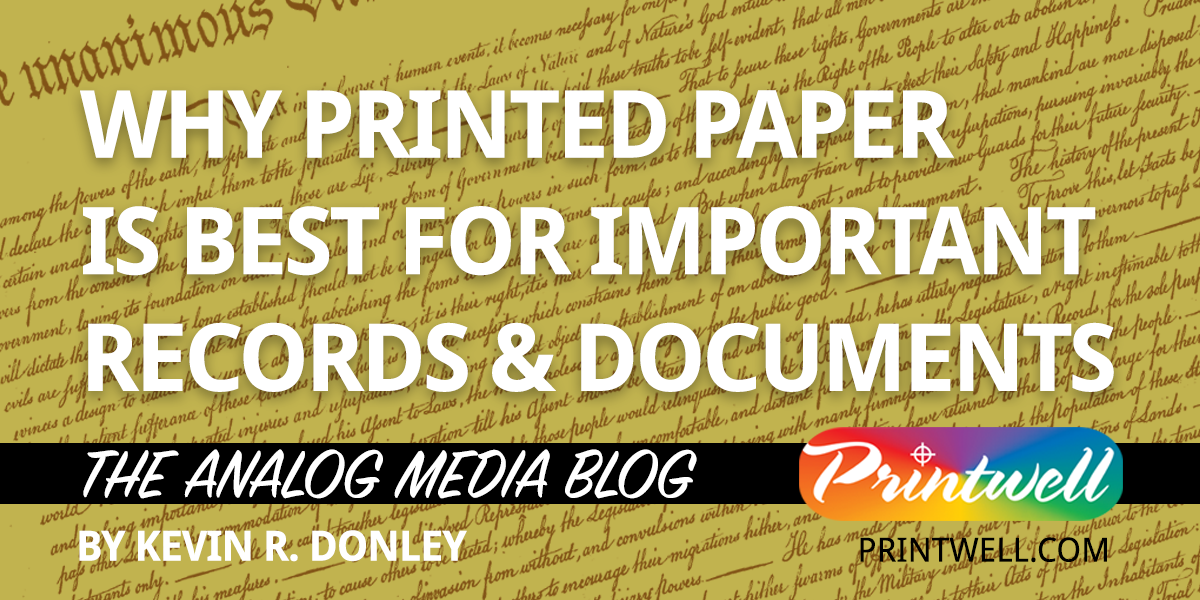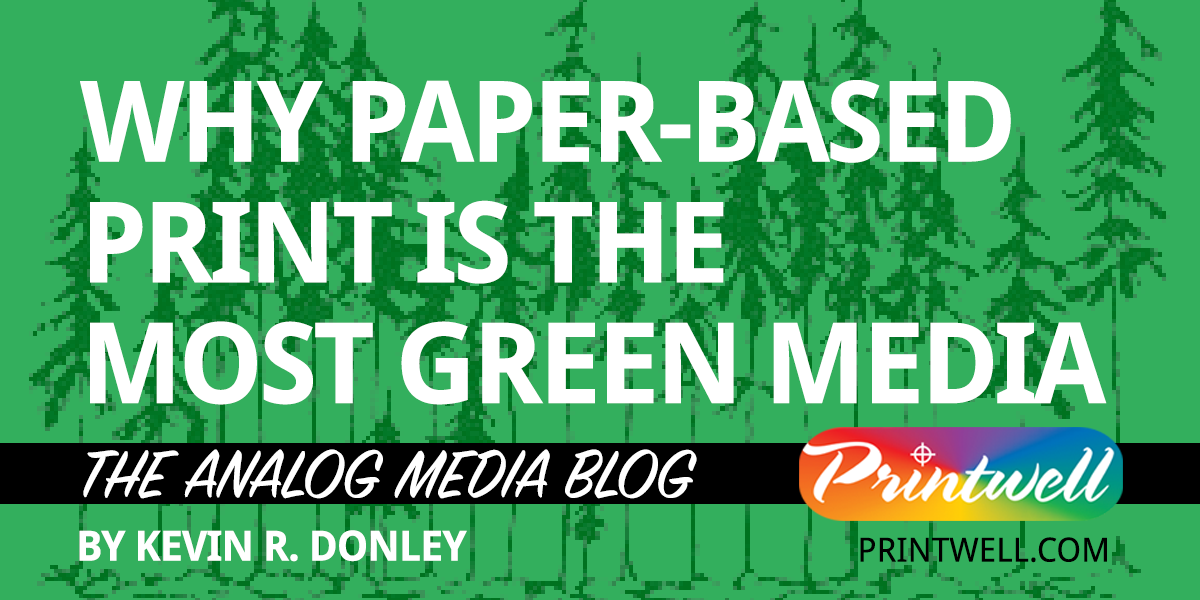Adding recycled pulp in the manufacturing of commercial printing paper has for many years been a way of establishing one’s sustainability credentials. Buyers of printing have, for example, often requested paper made with post-consumer waste (PCW) content and then promoted this fact with a recycled logo on their printed materials.
For decades publishers, marketers and printers believed they were doing the right thing for the environment by specifying papers made partially or completely out of recycled fiber.
However, the science of sustainability has matured and the environmental impact of the entire cycle of paper manufacturing is now better understood. It has been established that the use of recycled content in commercial printing paper is often not the most sustainable solution.
When it comes to coated and uncoated freesheet, i.e. paper manufactured with chemically processed rather than mechanically processed pulp, recycled content is more environmentally harmful than using virgin fiber.
This is why: The processing of scrap paper for the bright grades like #1 or #2 sheets requires deinking of the pulp from recycled sources. The process of cleaning and bleaching the post-consumer material leaves a greater carbon footprint than processing the wood fiber of freshly cut trees. According to a study by SAPPI, for example, adding 10% recycled fiber to the manufacturing of coated paper at their Somerset mill increases the carbon footprint of those papers by 16%.
The good news is two-fold:
- The recycling of paper by the public continues to climb and the fiber from these post-consumer sources is perfect for the manufacturing of packaging materials, paper board, etc. These paper products do not require the brightness and cleanliness standards of many commercial printing papers.
- Higher quality publications and marketing materials can still be printed on papers that are certified by the Forest Stewardship Council and the Sustainable Forestry Initiative. Printing customers can still play a role in environmental sustainability by selecting papers made from wood that is harvested from well-managed timber sources.
It is always helpful for buyers and producers of printed materials to encourage recycling and sharing of paper-based products when the material reaches the end of its usefulness. This can be done by including the following message and logo on all print products:

At Printwell, we are always looking for ways to improve our energy efficiency and reduce our contribution to the greenhouse gasses in the atmosphere. We also work hard to remove, control and/or dispose of environmentally harmful substances associated with our production processes.
Please contact your Printwell account representative to discuss ways that we can help you participate in sustainable business practices and make buying decisions with reduced environmental impact.


